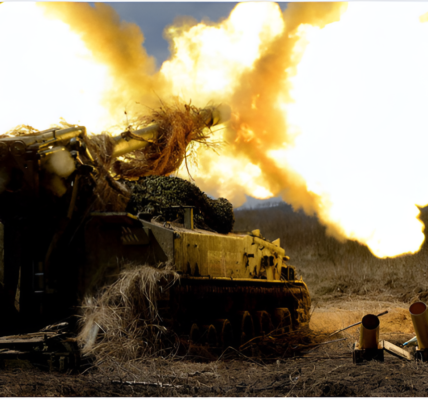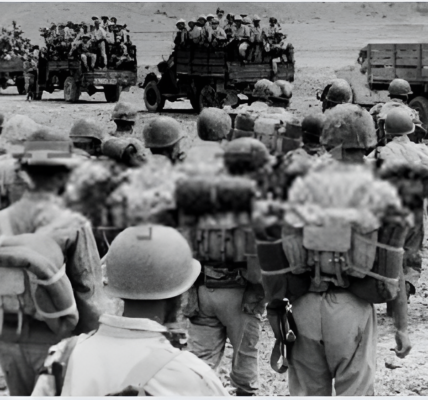
In an era of protracted, attritional conflicts that seem to drag on indefinitely, the ancient wisdom of Roman military strategist Flavius Vegetius has never seemed more relevant. His work, De Re Militari (On Military Matters), often hailed as one of the foundational texts on military theory, offers insights that resonate with modern military leaders facing seemingly endless wars. As the global security environment becomes more complex and drawn-out, the lessons from Vegetius are being revisited with a renewed sense of urgency.
The Timeless Relevance of Vegetius’ Wisdom
Written in the 4th or 5th century AD, Vegetius’ treatise has long been regarded as a blueprint for military effectiveness. His emphasis on training, discipline, and logistics are often cited as the pillars of a victorious army. “If you want peace, prepare for war” — this phrase, commonly attributed to Vegetius, reflects his belief that effective defense comes through preparedness and strength, not complacency. In a world where conflicts can stretch on for years or even decades, Vegetius’ emphasis on attrition, the prolonged wearing down of an enemy, offers an interesting lens through which we can understand modern warfare.
In the context of contemporary conflicts, from the wars in Afghanistan to the ongoing war in Ukraine, the concept of attrition — where victory is measured not by quick, decisive blows, but by the gradual erosion of the enemy’s capabilities — mirrors many of the strategic and tactical choices made by today’s military leaders.
The Endurance of Protracted Warfare
One of the most enduring features of modern warfare is its protracted nature. As opposed to swift, short campaigns, today’s military operations often stretch out over long periods. The war in Ukraine is a prime example of how modern conflicts can evolve into tests of endurance, with each side attempting to outlast the other in a war of attrition. Vegetius’ teachings about the importance of logistics, the well-being of soldiers, and the careful selection of commanders, echo loudly in these scenarios.
Vegetius strongly advocated for the importance of an army’s morale, discipline, and ability to supply itself. These concepts may seem basic, but in an age of extended military engagements, they are critical. Armies today, especially those fighting wars of attrition, rely heavily on their ability to sustain operations over the long term, often with limited resources. Vegetius’ focus on the long-term health and effectiveness of soldiers — ensuring they are well-trained, well-supplied, and well-led — is an essential consideration for today’s military forces.
The Influence of Vegetius on Modern Military Thought
While modern technology and advanced weaponry have changed the face of warfare, Vegetius’ strategic principles still provide valuable lessons. His call for comprehensive military training is echoed in the way modern militaries prioritize preparing their forces for all aspects of warfare, from physical readiness to psychological resilience. His concepts of logistics and support also align with current military operations that emphasize supply chains, technology integration, and the ability to operate in extended conflict zones.
Today, Vegetius’ work is not just a relic of the past but a text that holds a mirror to current military strategies. It reminds us that war is as much about stamina and resilience as it is about innovation and tactics. In this age of protracted warfare, understanding how to wear down an adversary, conserve one’s own resources, and outlast the enemy is just as important as achieving tactical victories on the battlefield.
The Ethics of Attrition: A Double-Edged Sword
Yet, as relevant as Vegetius’ ideas might be, the ethics of protracted warfare cannot be ignored. The strategic advantage of attrition often comes at great human cost. The destruction of cities, the loss of civilian lives, and the degradation of societies are the inevitable consequences of wars of attrition, which require not only military prowess but the ability to sustain public support for long periods. Vegetius’ focus on the pragmatic aspects of military action doesn’t necessarily address these moral and ethical dilemmas. In an age where the cost of war is measured not only in military terms but also in humanitarian terms, this gap becomes more significant.
As militaries rely on Vegetius’ teachings in modern conflicts, they must balance the effectiveness of attrition with the moral weight of prolonged warfare. The question of how long a society can endure the demands of war and the toll it takes on its citizens remains one of the most important issues in military strategy today.
Conclusion: The Legacy of Vegetius
Flavius Vegetius may not have had drones, satellites, or cyber warfare in mind when he wrote De Re Militari, but his insights into the nature of military conflict remain profoundly relevant. In an age of protracted warfare, where victory is often measured not by sudden breakthroughs but by long-term endurance, Vegetius’ ideas about preparation, logistics, and resilience offer a timeless framework for understanding the realities of modern conflict. As we look toward the future of warfare, perhaps it’s time to remember that victory does not always come swiftly, and that in war, sometimes the key to success is simply the ability to outlast the enemy.


